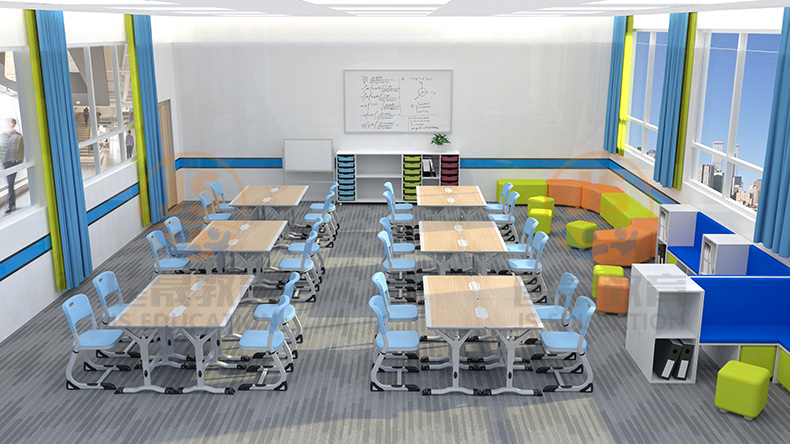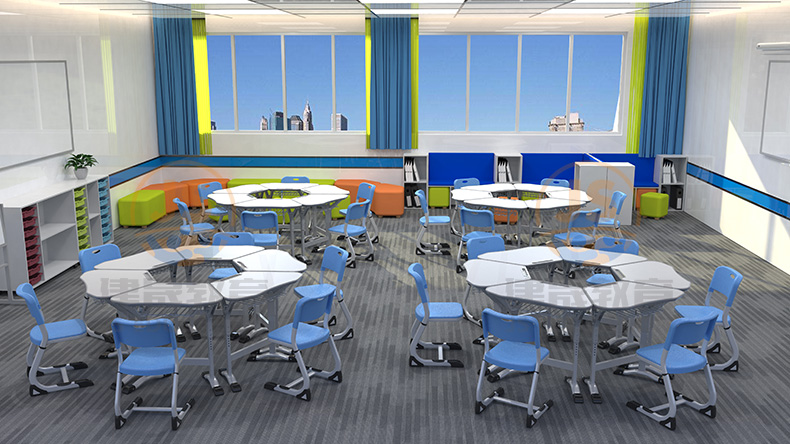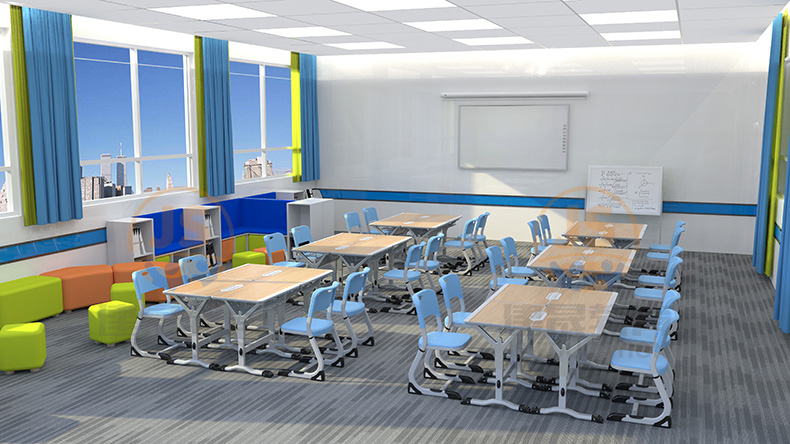- Home
- About Us
- Service
-
Solution
- Kindergarten Classroom
- Primary School Classroom
- Secondary School Classroom
- High School Classroom
- College Classroom
- Training Classroom
- Music Classroom
- Art Classroom
- Lecture Classroom
- Computer Classroom
- Library
- Principal Office
- Administration Office
- Meeting Room
- Reception Room
- Public Area
- Teachers' Office
-
Products
- Case Study
- News
- VR Designs
- Video Center
- JS Lab
- Contact Us

"Experiential learning" is becoming the future of education
2020-11-04 20:03
"Experiential learning" is becoming the future of education
The goal of the school curriculum and pedagogy is to equip students with the key skills of the 21st century, reduce the content of the curriculum to strengthen basic learning and critical thinking, and pay more attention to experiential learning, so as to achieve the overall development of students. Students will have more flexibility and elective subjects. There will be no rigid separation between liberal arts and sciences, intracurricular activities and extracurricular activities, vocational education and academic education.
So, what is experiential learning? What are its benefits? What should teachers do to incorporate this model into their classrooms? How to design and build an experiential school?
1. What is experiential learning?
Experiential education first immerses learners in an experience, and then encourages reflection on the experience to develop new skills, new attitudes or new ways of thinking.

2. Traditional learning methods and experiential learning
Traditional learning methods pay too much attention to rote learning and memory. Although this can make it possible for students with good memory to get higher scores, even if they are not clear about these courses or concepts. Experiential learning, a model that encourages conceptual understanding can help students build a foundation based on the knowledge they have already mastered, and help them establish new and more meaningful connections between old and new concepts. By encouraging students to think critically from an early age, experiential learning can help them discover new connections and acquire new problem-solving skills.

3. What are the benefits of experiential learning?
? Students can understand concepts better
? Students have the opportunity to become more creative
? Students have the opportunity to reflect
? Students’ mistakes become valuable experience
? Teachers often observe the improvement of students' learning attitude

4. How to integrate experiential learning into the classroom?
Activity-based learning uses hands-on experiments and activities. Students often collaborate to achieve set goals.
Problem-based learning requires students to actively participate in real-world problems, thereby developing critical thinking skills and creativity.
Project-based learning includes various courses and encourages students to develop 21st century skills such as communication, research and inquiry, and time management.
Get the latest price? We'll respond as soon as possible(within 12 hours)







